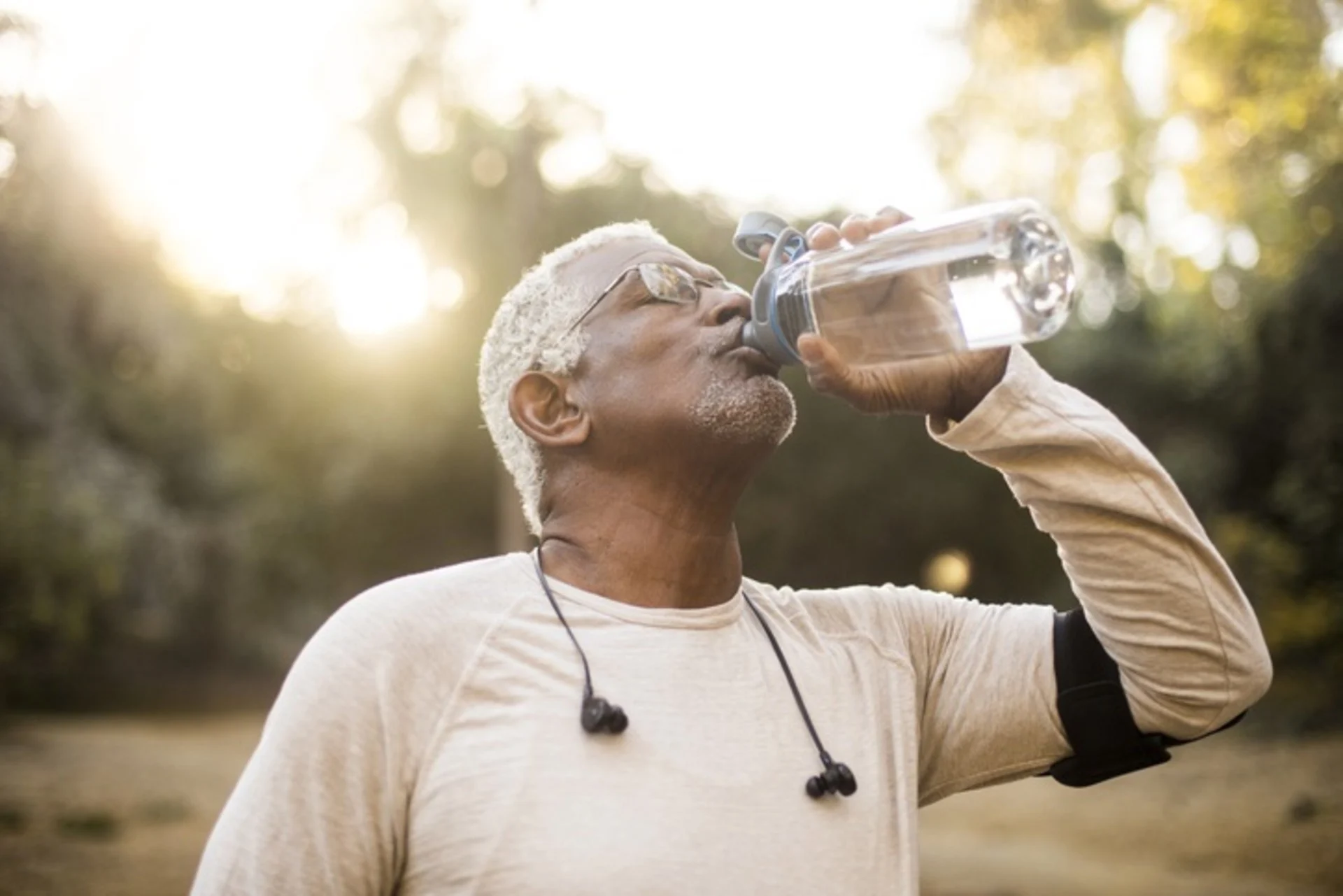
Staying hydrated on a hot day is a lot more important than you think
This is your reminder to take a break and drink some water.
Summer can creep up on you sometimes. Given that it was cold and dreary in parts of Canada just a couple of weeks ago, it's common for people to forget that it's time to take summer-centric precautions: wearing sunscreen and a hat, seeking shade during the hottest points of the day, and staying hydrated.
Here's why it's important to stay hydrated in hot weather:
It can prevent heat stroke and heat exhaustion. Hot weather can contribute to excessive sweating, which is the body's way of trying to cool down. By staying hydrated, you help maintain a stable body temperature. Experts say hydration is one of the most effective ways to prevent heat exhaustion.
It can enhance physical performance. Whether engaging in outdoor activities, exercising, or simply going about the day, adequate hydration can significantly improve physical performance by ensuring your muscles and joints function optimally, improving endurance, and reducing the likelihood of muscle cramps and fatigue.
Hydration supports cognitive function. Studies suggest dehydration can impair cognitive abilities, affecting concentration, alertness, and decision-making. By staying hydrated, you're helping your brain stay focused and sharp.
Tips for staying hydrated
Carry a reusable water bottle and aim to consume at least 8-10 cups (64-80 ounces) of water daily. Increase your intake if you're engaging in physical activities or spending prolonged periods outdoors. The Center for Disease Control says drinking in short, frequent intervals is a more effective strategy than consuming large amounts infrequently.
Incorporate hydrating foods into your diet, such as fruits and vegetables with high water content. Cucumbers, watermelon, strawberries, citrus fruits, and leafy greens have the added bonus of providing essential minerals and vitamins.
Alcohol and caffiene can increase your risk of dehydration. If you indulge, balance your intake with additional water consumption to counteract their diuretic effects.
Drink water before, during, and after your activities to replenish the fluids lost through sweat.
Signs of dehydration
Dehydration symptoms may include excessive thirst, dry mouth, dizziness, fatigue, headache, and muscle cramps, according to the National Health Service.
If you experience these symptoms, seek shade and rehydrate immediately.
Now get out there and remember to stay cool, stay hydrated, and savour those warm summer days.
WATCH: No A/C? These are the quick and easy things you should be doing
Header image: file photo (Getty)










